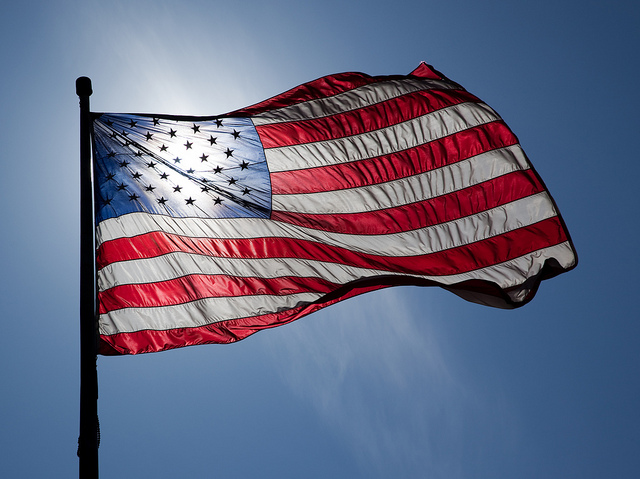
PALM BEACH, Fla.—The United States is vowing to keep up the pressure on Syria after the intense nighttime wave of missile strikes from U.S. ships, despite the prospect of escalating Russian ill will that could further inflame one of the world’s most vexing conflicts.
Standing firm, the Trump administration on Friday signalled new sanctions would soon follow the missile attack, and the Pentagon was even probing whether Russia itself was involved in the chemical weapons assault that compelled President Donald Trump to action. The attack against a Syrian air base was the first U.S. assault against the government of President Bashar Assad.
Much of the international community rallied behind Trump’s decision to fire the cruise missiles in reaction to this week’s chemical weapons attack that killed dozens of men, women and children in Syria. But a spokesman for Russian President Vladimir Putin warned that the strikes dealt “a significant blow” to relations between Moscow and Washington.
A key test of whether the relationship can be salvaged comes next week when Secretary of State Rex Tillerson becomes the first Trump Cabinet member to visit Russia.
Tillerson said he sees no reason for retaliation from Russia for the U.S. missile strikes. Russia maintains a close political and military alliance with the Assad government and has been implicated in many of the attacks against Syrians opposed to Assad’s rule, though Moscow adamantly denies such claims.
In an interview to air Sunday on CBS’ “Face the Nation,” Tillerson said Russians were not targeted by the strikes. He also said the top U.S. priority in the region hasn’t changed and remained the defeat of Islamic State militants.
British Foreign Minister Boris Johnson also had planned to visit Russia this coming week, but decided Saturday to cancel the trip because of the fast moving events in Syria. Johnson, who condemned Moscow’s continued defence of Assad, said Tillerson will be able to give a “clear and co-ordinated message to the Russians.”
At the United Nations on Friday, Russia’s deputy ambassador, Vladimir Safronkov, strongly criticized what he called the U.S. “flagrant violation of international law and an act of aggression” whose “consequences for regional and international security could be extremely serious.” He called the Assad government a main force against terrorism and said it deserved the presumption of innocence in the chemical weapons attack.
The U.S. ambassador to the U.N., Nikki Haley, said the world is waiting for the Russian government “to act responsibly in Syria” and “to reconsider its misplaced alliance with Bashar Assad.”
Trump spoke by telephone Friday with Saudi Arabia’s King Salman, who reaffirmed strong support for the military strike and thanked the U.S. president for his “courageous” action, according to statements issued Saturday by the White House and the official Saudi Press Agency.
Saudi Arabia, one of the most vehement opponents of Assad, said the missile barrage was the right response to “the crimes of this regime to its people in light of the failure of the international community to stop it.”
The Turkish foreign minister, whose country is a strong backer of the Syrian opposition, said the U.S. missile strikes were not enough. Mevlut Cavusoglu said Saturday that the U.S. intervention was only “cosmetic” unless it removes Assad from power. He said the most ideal process would be a political solution that leads to a transitional government.
In Florida with the president, Treasury Secretary Steven Mnuchin said additional economic sanctions on Syria were being prepared.
Thursday night’s strikes — some 60 cruise missiles fired from two ships in the Mediterranean — were the culmination of a rapid, three-day transformation for Trump, who has long opposed deeper U.S. involvement in Syria’s civil war. Advisers said he was outraged by heartbreaking images of young children who were among the dozens killed in the chemical attack.
The decision undercut another campaign promise for Trump: his pledge to try to warm relations with Moscow. After months of allegations of ties between his election campaign and the Kremlin — the subject of current congressional and FBI investigations — Trump has found himself clashing with Putin.
On Friday, senior U.S. military officials were looking more closely at possible Russian involvement in the poison attack. Officials said a drone belonging to either Russia or Syria was seen hovering over the site after the assault earlier this week. The drone returned late in the day as citizens were going to a nearby hospital for treatment. Shortly afterward, officials say the hospital was targeted.
The officials, who insisted on anonymity in order to discuss the sensitive matter, said they believe the hospital attack may have been an effort to cover up evidence of the earlier assault.
White House officials caution that Trump is not preparing to plunge the U.S. deeper into Syria. Spokesman Sean Spicer said the missile attack sent a clear message to Assad, but he avoided explicitly calling for the Syrian to leave office.
In a letter to Congress on Saturday, Trump said he “acted in the vital national security and foreign policy interests of the United States, pursuant to my constitutional authority to conduct foreign relations” and as commander in chief and chief executive.
He said the U.S. “will take additional action, as necessary and appropriate, to further its important national interests.”
Trump, who is spending the weekend at his Florida resort, tweeted a brief explanation Saturday of why the military didn’t strike the runways in its bombardment of the Syrian air field, writing, “they are easy and inexpensive to quickly fix (fill in and top)!”